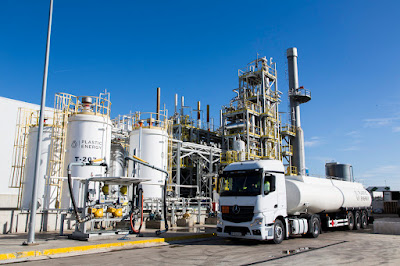Senate approves scientifically unsound and environmentally dangerous plastics burning bill
By Steve Ahlquist, UpRiseRI
At this time of year, as the Rhode Island General Assembly approve various bills, press releases herald legislation thought to be of particular import of public interest. The Rhode Island Senate issued six press releases yesterday, including:
Senate approves
Murray bill limiting copays for diabetes supplies
Senate approves
bill codifying federal contraceptive coverage in state law
Senate asks
RIRRC, DEM to study recycling, bottle redemption programs
 |
| Some legislators have no shame |
One bill the Senate passed, after lengthy discussion, but did not issue a press release for, was a so-called “advanced recycling” bill (S2788) that would exempt plastic burning facilities from state solid waste regulations.
The Senate issued a press release on wind energy entitled Senate approves
bill seeking offshore wind development but not one
entitled Senate approves scientifically unsound and environmentally
dangerous plastics burning bill.
I think the reason for the oversight is simple: Shame.
After a half hour of debate, the Senate passed the bill enabling pyrolysis in Rhode Island. Sponsored by Senator Frank Lombardo (Democrat, District 25, Johnston) and heavily lobbied by the American Chemistry Council (ACC), the bill allows companies to experiment with the health and safety of Rhode Islanders by building these facilities anywhere in the state. [See: The bad idea that never dies: Pyrolysis is back at the Rhode Island State House]
The bill passed 19-14, with five Senators “taking a walk,” that
is, conveniently locating themselves outside the Senate Chamber when the vote
was held. For the record, those taking a walk were Senators Sandra Cano, Valerie
Lawson, Joshua Miller, Leonidas Raptakis and Susan
Sosnowski.
Only Senators Tiara Mack, Kendra Anderson, Cynthia
Mendes, Jeanine Calkin and Samuel Bell spoke out against
the bill on the floor. Senators Elaine Morgan, Frank Lombardo, Louis
DiPalma and Frank Lombardi spoke in support of the bill. No
other Senators, even those widely considered environmental champions, spoke.
It’s also worth noting that the answer Senator Lombardo gave to Senator Raptakis in the Senate Judiciary Committee, when asked if communities will be able to reject these facilities, is the exact opposite of the answer he gave to Senator Morgan on the Senate floor.
To Raptakis, Lombardo said that
municipalities would have no power to reject the facilities. To Morgan, Lombardo
said municipalities would be able to reject these facilities.
“There is no good reason to exempt toxic, climate-damaging
facilities from laws and regulations designed to keep Rhode Islanders safe,”
said CLF Senior Attorney Kevin Budris. “It makes no sense to
pass a strong climate law and then undo that progress. This bill will not only
strip our communities of their rights, but it will also set the state back on
its climate goals. The House should not make the same mistake.”
The bill still has to pass the House and be signed by
Governor Daniel McKee before it becomes law. But if the bill becomes
law, “advanced recycling” facilities could move into Rhode Island without the
same siting restrictions, operating standards, government oversight, and public
permitting processes that apply to other waste and recycling facilities says
CLF in a statement.
CLF continues:
“Advanced recycling” is a term coined by the plastic and fossil
fuel industry that refers to technologies that use high-heat processes like
pyrolysis and gasification to turn plastic waste into toxic chemicals and dirty
plastic-derived fuels. While the industry claims that these materials are used
to make new plastics, there is no evidence to support that claim. Instead,
these materials are burned, creating climate-damaging emissions and air
pollution.
The petrochemical industry profits immensely from plastics
production; its goal with bills like S2788 is
to make it easier to make and burn as much plastic as possible.
